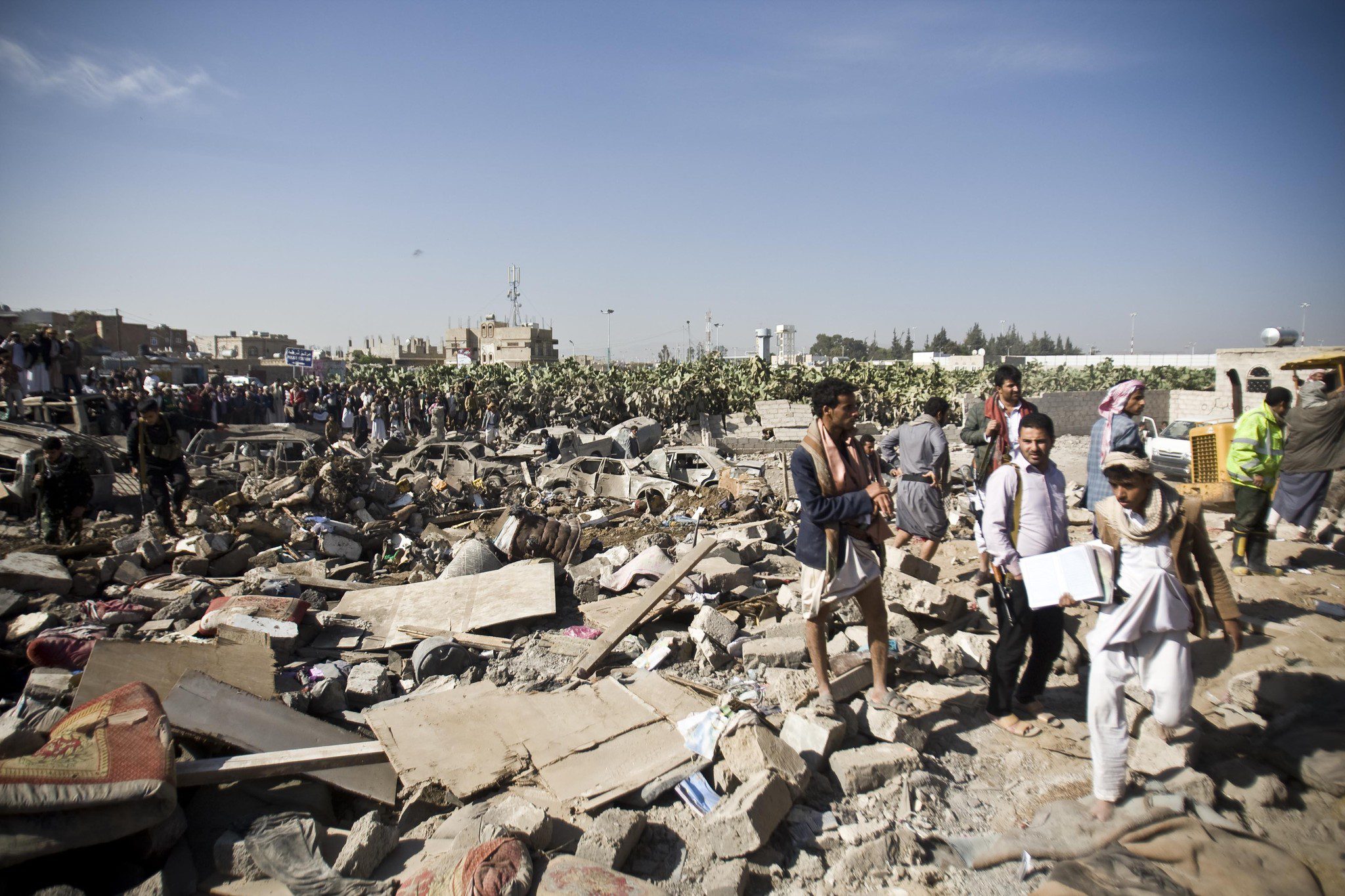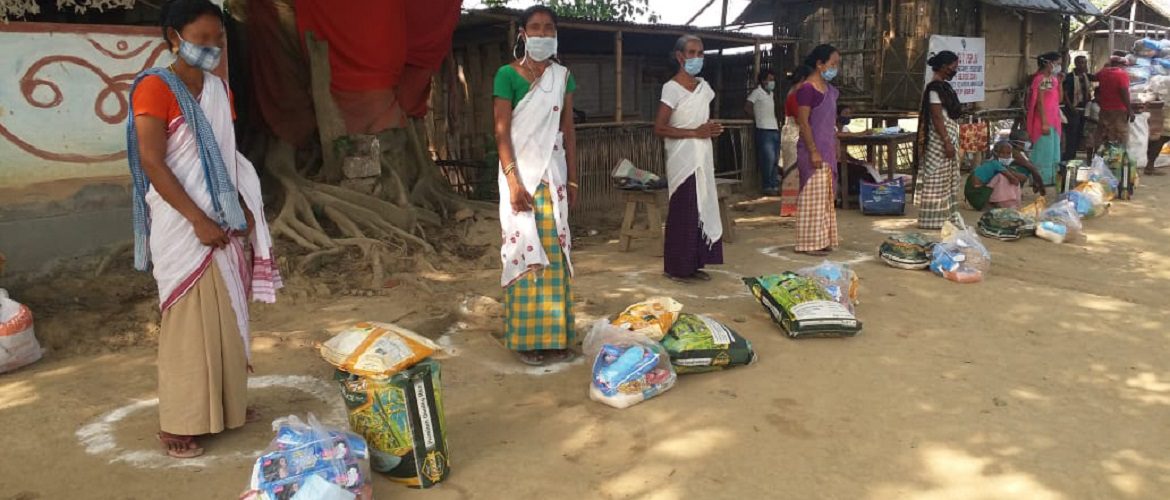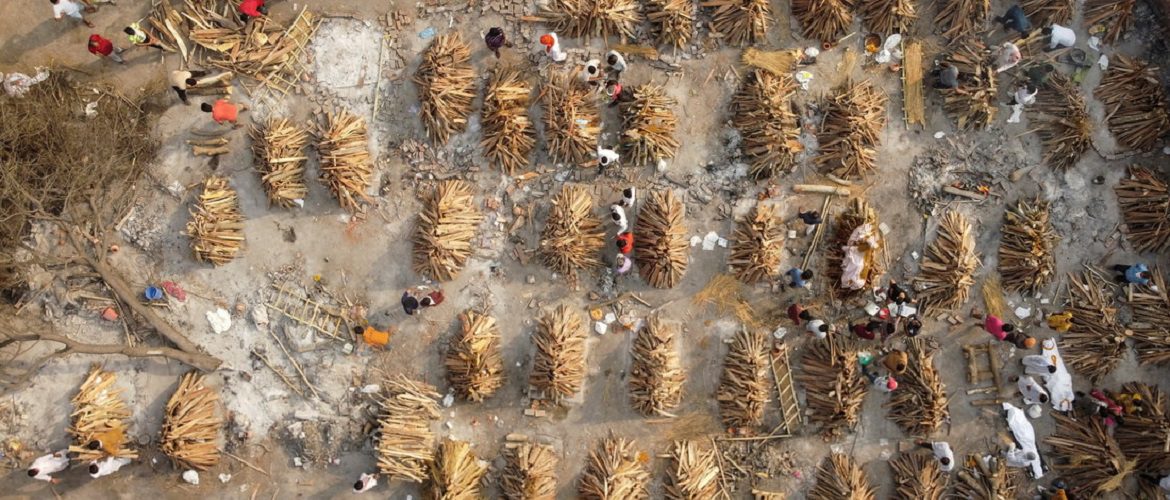By Hind*, Oxfam in Yemen
Yemen is undergoing an unprecedented humanitarian crisis. One in two people in Yemen — nearly 13 million people — are now struggling to find enough to eat. From that number, half of them are on the brink of starvation. Since the start of the conflict, nearly 25,000 additional people are going hungry each day in Yemen as the blockade and fighting restrict food, fuel and other vital supplies.
Noor* and her husband once had a medical clinic in Saada Governorate, north Yemen, along the border of Saudi Arabia. Now they have a mound of rubble.
In a phone conversation I had with Noor recently, she told me that the governorate is not new to armed violence. In fact, the area where they live has seen intermittent fighting between different groups since 2004.
But the airstrikes that began in March 2015 “were like nothing we’ve seen before”.
Noor, 35, added: “Since March, the skies of Saada are raining fire on us every day. There are now no signs of life here: houses are destroyed, farms are burnt, and everyone’s gone – they’re dead or they’ve fled.”
Not enough time to flee
The family’s house has so far outlived the fighting. But when the airstrikes start, Noor, her husband and son, Omar*, 7, run and hide in a nearby cave that they dug in a mountain and used as a shelter during a previous conflict, then covered up, and are now re-using.
“Leaflets dropped by Saudi planes gave us three hours to evacuate. It was not enough time. We and many others live near the border with Saudi Arabia, hours from the only main road, which was also inaccessible and targeted by the fighting. So we stayed.”
The cave is now home, but Noor’s family isn’t alone there.
“There are snakes and scorpions living with us in the cave – and we had to get used to having them around. At night I put my son in a sleeping bag I made and tie it around his head to protect him. He used to get scared, but now doesn’t even blink when he sees a scorpion crawling on my leg.”
Basic food now a luxury
While 21 million people in Yemen are in need of aid, the situation in Saada is exceptional. Based on data by the Integrated Food Security Phase Classification (IPC), 80% of the governorate’s inhabitants cannot find enough food to eat, 50% are critically in need.
“Even basic foods are now a luxury. We have a piece of agricultural land by the house that we tend to, but I don’t know how long we’ll last on just vegetables and grains. We get fuel once in a blue moon, and cooking gas has been out for months, so we use wood and coal to cook and boil water for drinking. We’ve had solar panels for a while, so we get some electricity that we use mostly to charge phones and get in touch with my parents to make sure they’re ok.”
But Noor was hesitant to go into details on the situation in Saada – and the phone conversation was getting uncomfortable for her.
“This might be our last conversation, Hind. The phone lines may no longer work. I just want to say we need an end to this, and soon. Omar can’t sleep as he gets nightmares about the bombs and airstrikes. I try to stay strong: For my son, my husband, my parents who I haven’t seen for months, for my mother who can’t stop crying every time I call her, for this country – it was such a beautiful country and now we’re left with destruction, tears and blood everywhere. Nothing but death all around us.
I don’t know how long we are going to last. We are alive, but only until we die – senselessly – like the thousands that already beat us there.”
*Names have been changed



